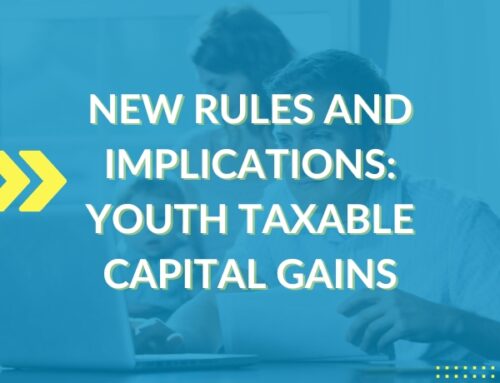Posted November 5, 2023.
This is the fifth and final blog post in our series covering Canada’s enhanced mandatory disclosure rules imposed by Bill C-47. Here we focus on the penalty provisions that CPAs, as well as their clients, need to be aware of. From hefty financial penalties to due diligence defences, understanding these new rules is critical for ensuring compliance and mitigating risks.
An Overview: Why Enhanced Disclosure?
Firstly, it’s important to understand the rationale behind these enhanced rules, especially if you’re advising clients on tax planning and compliance. The new mandatory disclosure requirements aim to equip the Canada Revenue Agency (CRA) with timely and comprehensive information about certain transactions that may pose tax risks. The changes serve as a tool for the CRA to promptly identify and respond to aggressive tax planning and evasion.
Types of Transactions & Applicability
Let’s quickly recap the types of transactions affected by the new provisions. Essentially, we’re looking at three categories:
- Reportable Transactions
- Notifiable Transactions
- Reportable Uncertain Tax Treatments (RUTTs)
These rules apply to transactions occurring after June 21, 2023, and for tax years beginning after 2022 for RUTTs. If you need more information about RUTTs, we covered this topic in Part 4 of the series, which can be found HERE.
The Sting: Financial Penalties
Non-compliance with these rules comes with significant financial penalties, categorized based on the role one plays in the transaction—either as a taxpayer, an advisor, or a promoter.
For Taxpayers
– Individuals & Small Corporations: A penalty of $500 per week for each failure to report, up to the greater of $25,000 or 25% of the tax benefit.
– Corporations with Assets Over $50 Million: The penalty is steeper at $2,000 per week, up to the greater of $100,000 or 25% of the tax benefit.
For Advisors and Promoters
– Fees Charged: 100% of the fees charged for the transaction.
– Additional Penalties: $10,000 plus $1,000 per day during which the failure continues, up to $100,000.
For RUTTs
– Corporations: A penalty of $2,000 per week, up to $100,000.
The penalties are not just financial; they also include extended reassessment periods, adding another layer of risk.
Due Diligence as a Safety Net
Now, for some relatively good news. There is a ‘due diligence defence’ against these penalties. This defence parallels that of the existing due diligence for director’s liability under the Income Tax Act. The defence essentially posits that if you’ve exercised the same level of care, diligence, and skill that a “reasonably prudent person” would have exercised in similar circumstances, you may not be liable for the penalties.
Remember, the standard here is objective, based on what a reasonably prudent person would do, rather than subjective evaluations of the individual’s own capacities. However, the actual circumstances of the case still matter and will be reviewed against this “reasonably prudent person” standard.
The RC312 & RC3133 Approach
If you have previously filed an RC312 or an RC3133 or have an ongoing case in tax court, you can reference those disclosures in the new forms, thereby reducing redundancy. For recurring tax benefits, these only need to be reported once.
Navigating Complex Transactions
A tricky area is when a transaction falls under multiple categories. The good news is that the CRA has streamlined this by allowing you to indicate on Form 312 that the transaction is both a reportable and notifiable transaction.
Final Thoughts for CPAs
Understanding these rules is crucial for you as a CPA not only for advising your clients but also for your own practices. Here’s what you can do to stay ahead:
Stay Updated: Regulatory environments are fluid. Keep yourself and your team updated on CRA guidelines.
Professional Consultation: For intricate transactions, it’s wise to consult legal experts who specialize in tax law.
Internal Training and Monitoring: Ongoing training and monitoring of client activities can help you align your practices with compliance requirements. Of course, internal training includes attending and sending staff to courses like AJAG’s Professional Engagement Refresher – 2023 written and presented by David Baker, CPA, CA or Income Tax Update – 2023 written and presented by Howard Wasserman, CPA, CA, TEP.
Document Everything: Rigorous documentation can be your best defence in case of a CRA audit.
Preventive Action: Given the hefty penalties, a preventive approach is much better than a curative one.
In conclusion, the enhanced mandatory disclosure rules are here to stay, and understanding their penalty provisions is crucial for anyone dealing with financial and tax planning. We hope this blog series on Bill C-47 has been informative and insightful. For a full listing of all AJAG’s courses.
Thank you for following this series. Stay compliant and take care!
Disclaimer:
The information contained in this blog post is intended for general informational purposes only and should not be construed as legal, accounting, or tax advice. While every effort has been made to ensure the accuracy and reliability of the content, the author and publisher make no representations or warranties as to the completeness, accuracy, or applicability of any information provided.
Neither the author nor the publisher shall be liable for any errors or omissions in the content, or for any actions taken in reliance thereon. Readers are advised to consult the original legislation or other legal sources for complete and accurate information.






